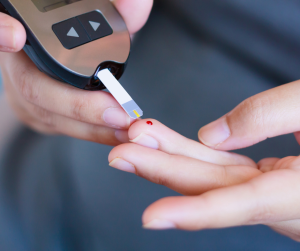Diabetes is a disease or disorder? Diabetes affects over 830 million people globally. Although many people use the terms interchangeably, understanding the difference matters. Knowing whether diabetes is a disease or disorder shapes treatment. It affects how doctors approach care. It also influences public health policy.
When we treat it as a disease, we focus on medication and complications. When we treat it as a disorder, we emphasize prevention and lifestyle. Both views are valid. Together, they offer a complete strategy.
This blog breaks down the science, the symptoms, and the societal impact. It also explores expert opinions and current statistics to help you grasp the full picture.
What Defines a Disease vs. a Disorder?
To begin, we must understand the definitions. A disease is a condition with specific symptoms and identifiable causes. It often involves structural or functional damage to organs. A disorder, on the other hand, refers to irregularities in function. It may not always involve physical damage.
Diabetes fits both definitions. It disrupts how the body regulates blood glucose. It also damages organs over time. Therefore, experts often classify it as a disease. However, some also call it a metabolic disorder due to its functional nature.
Dr. Rita Kalyani from Johns Hopkins explains, “Diabetes is a serious disease that occurs when the body cannot maintain normal levels of glucose”. Her statement highlights the disease aspect. Yet, the metabolic dysfunction also supports the disorder classification.
Medical Classification To Determine if Diabetes Is a Disease Or A Disorder
Medical professionals often refer to diabetes as a chronic disease. The World Health Organization (WHO) lists it among the top global health threats.
However, it also falls under the category of metabolic disorders.
Let’s break it down:
- Type 1 Diabetes: This form is an autoimmune disease, and typically starts when the body attacks insulin-producing cells. Therefore, it is clearly a disease involving the immune system. Type 1 diabetes usually begins in childhood. Gradually, the immune system’s attack on the pancreas makes it a disease. As a result, it requires lifelong insulin therapy.
- Type 2 Diabetes: This type results from insulin resistance. The body produces insulin but cannot use it effectively. It is often called a disorder because of its metabolic nature. Type 2 diabetes is more common, and it typically affects adults due to lifestyle factors. Although it starts as a disorder, it becomes a disease when complications arise.
- Gestational Diabetes: This occurs during pregnancy, when hormonal changes affect insulin use. It is temporary, but it is still classified as a disorder.Gestational diabetes increases the risk of type 2 diabetes later. Therefore, it requires monitoring and lifestyle changes during pregnancy.
Diabetes Is a Disease or Disorder Based On How It Impacts the Body
Diabetes is a disease or disorder that affects multiple organs. Over time, high blood sugar damages blood vessels. This leads to complications such as:
- Kidney Failure: Diabetes is the leading cause of kidney failure worldwide, primarily because high glucose levels consistently strain the kidneys. Over time, this ongoing stress causes them to lose function. As a result, many individuals eventually require dialysis or even a kidney transplant.
- Blindness: Diabetic retinopathy often leads to vision loss because it damages the retina through weakened blood vessels. Fortunately, regular eye exams can catch early signs before serious harm occurs. With timely treatment, the progression of this condition can slow down significantly.
- Heart Disease: Diabetes increases the risk of heart attacks and strokes. High blood sugar affects arteries. It leads to plaque buildup and reduced blood flow.
- Amputation: Poor circulation and nerve damage can lead to limb loss. Foot care and blood sugar control reduce this risk. These complications show that diabetes behaves like a disease. It causes structural damage and requires medical intervention.
Mental Health Connection
Diabetes doesn’t just affect the body—it also impacts mental health. In fact, studies show a strong link between diabetes and depression. Managing blood sugar every day creates stress, and over time, that stress adds to the physical toll.
People with diabetes often feel overwhelmed. They track food, exercise, and medications constantly. This nonstop vigilance can lead to anxiety. On top of that, blood sugar swings directly affect mood, making daily life even harder.
That’s why mental health support matters. Therapy and peer groups give people tools to cope. When emotional health is addressed, overall outcomes improve—and life feels more manageable.
Lifestyle and Prevention
Whether diabetes is a disease or disorder, lifestyle plays a big role in addressing the condition. Type 2 diabetes is largely preventable. Simple changes can reduce the risk:
- Healthy Diet: Eating whole grains, vegetables, and lean proteins helps regulate blood sugar. Avoid processed foods and sugary drinks. Choose fiber-rich meals to slow glucose absorption.
- Regular Exercise: Physical activity improves insulin sensitivity. Therefore, aim for 30 minutes of moderate exercise daily. Walking, swimming, or cycling works well.
- Weight Management: Maintaining a healthy weight lowers diabetes risk. Obesity increases insulin resistance. Losing even 5% of body weight helps.
- Avoid Tobacco: Smoking worsens diabetes complications. It damages blood vessels and increases the risk of heart disease. Quitting improves health.
These steps empower people to take control. Prevention is possible with consistent effort.
Diabetes Is a Disease or Disorder: Global Statistics
The global burden of diabetes continues to rise. According to WHO:
- Over 830 million people live with diabetes.
- In 2021, diabetes caused over 2 million deaths.
- More than 50% of patients lacked access to medication in 2022.
- These numbers show the urgency. Governments and health systems must act. Education, access, and support are vital.In conclusion, you play a key role in managing diabetes. Whether you live with it or support someone who does, knowledge helps. Learn the facts. Make healthy choices. Seek support when needed.
Diabetes is a disease or disorder, but it doesn’t define you. With the right tools, you can thrive.

